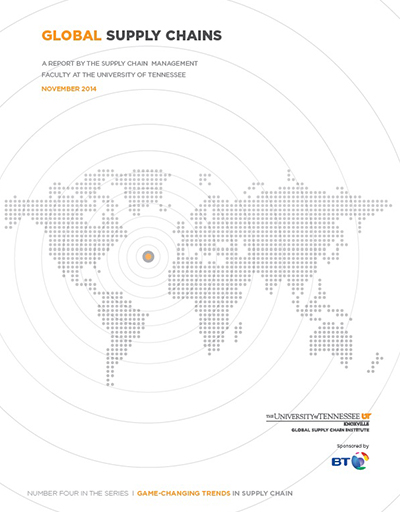Global Supply Chain Best Practices and Insights
Back to the Basics: Fundamental Tools for Revolutionizing Your Global Supply Chain Strategy
“Global Supply Chain Best Practices and Insights”
A White Paper by the University of Tennessee Global Supply Chain Institute
More Information on this White Paper
What's Inside
“As supply chain leaders, we realize that the best global network decisions are based on business and strategic needs. In essence, there is no single best answer for our work.”
Managing global supply chains requires a careful balance of cost, complexity, and risk, too often underestimated in traditional offshoring strategies. This white paper, developed by the University of Tennessee’s Global Supply Chain Institute (GSCI), highlights best practices for designing and managing global supply chains. Created in collaboration with BT Global, it emphasizes a Total Cost of Ownership (TCO) approach, moving away from short-term cost-cutting to sustainable, strategic decision-making.
The paper also introduces the EPIC framework, a fundamental methodology for assessing global supply chain locations based on Economic, Political, Infrastructural, and Competence factors. Additionally, it explores how regionalized "pods" of supply and demand can enhance supply chain resilience. With insights from industry leaders, this resource equips supply chain professionals with strategies to navigate a dynamic global landscape and improve global competitiveness.
- Best practices for global supply chain management
- EPIC Framework
- Helpful information, terms, visuals, charts, and insights
- Supply Chain Network Design (SCND) Tool and Self-Diagnostic
For more in-depth, industry-focused white papers from the Global Supply Chain Institute (GSCI) at the University of Tennessee, Knoxville, visit this web page. Recent papers produced by the Advanced Supply Chain Collaborative, an initiative of GSCI, engage industry experts and UT faculty to explore and report on advanced concepts in supply chain management and innovation, including supply chain agility, last-mile and reverse logistics, and more.
Who This White Paper is Primarily For: Supply Chain Managers, Supply Chain Planners, Corporate CEOs, Supply Chain Professionals, Chief Supply Chain Officers, Chief Procurement Officers, Supply Chain Leaders, and Supply Chain Students.
